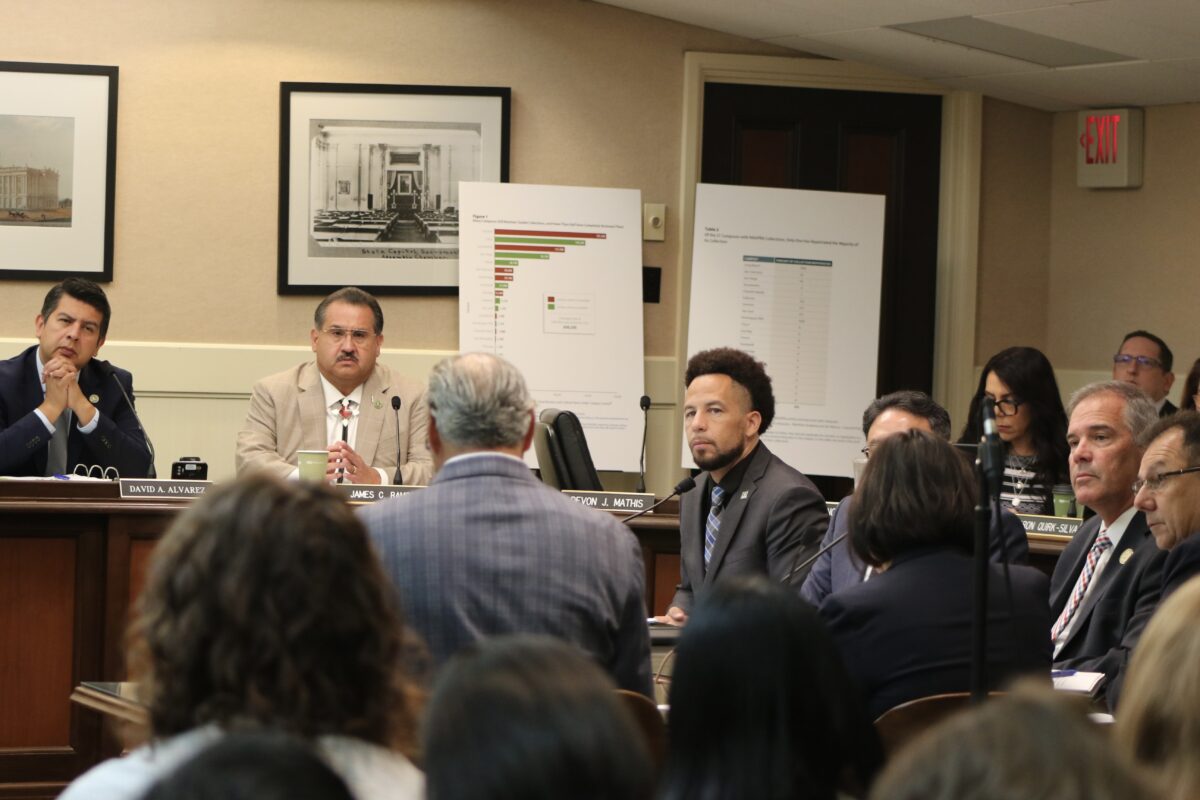Legislators and California tribal representatives questioned California State University administrators, including Sacramento State, in a hearing Tuesday concerning the CSU’s failure to return Native cultural artifacts and human remains despite federal and state law requiring they be returned three decades ago.
The California State Assembly hearing comes after the release of the state auditor’s report, which found that only 6% of the CSU’s collections had repatriated the nearly 700,000 cultural items and human remains after the 1990 Native American Graves Protection and Repatriation Act and its 2001 state level counterpart, CalNAGPRA were enacted.
RELATED: State audit finds CSU mishandled sexual harassment investigations
“As a graduate of Sacramento State, there’s nothing that makes me more ashamed to be a part of this institution than this issue,” President of Sac State, Luke Wood, said in a press conference later that day. “It’s something that I know we take seriously and that we’re going to be working very closely with our tribal partners to change.”
According to the audit, Sac State has the third largest collection in the CSU system with over 115,000 items. President Wood said that of this collection 49% of cultural artifacts and 73% of ancestral remains have been claimed by tribal nations, but they have yet to be returned.
Wood said the cultural objects and remains are in the process of being repatriated and that the university is looking to return all artifacts and remains within the next couple of years.
“We’re committed to working with our tribal partners so that we could bring home their ancestors’ funerary items and cultural objects,” Wood said at the hearing. “Sacramento State is consulting with tribal partners on over 90% of our collections.”
RELATED: Archaeological curation facility working with Native tribes to recover remains
He said three tribal representatives are currently seated on the campus NAGPRA Advisory Committee including members from the Yocha Dehe Wintun Nation in Yolo County, Shingles Springs based Band of Miwok Indians and United Auburn Indian Community.
Though the audit included a survey of all 23 schools within the CSU system, it also provided on-site reviews of its universities at Chico, San Diego, San Jose and Sacramento. The report cites the four institutions’ failure to return cultural items and remains as a lack of prioritization, funding, policy and staffing for the repatriation process.
Sac State’s NAGPRA coordinator, Sarah Eckhardt, said the repatriation process is mainly carried out by state and federal laws. She said it starts with having consultations with tribal nations “to determine cultural affiliation, tribal preferences and appropriate handling.”
After the consultation, Eckhardt said culturally-affiliated tribes are able to submit claims for the cultural objects and remains.
“Most of our collections are also culturally affiliated with several tribes, and they are often burdened with having to consult with many universities and other institutions,” Eckhardt said. “Despite these challenges, we have recently seen tremendous success in repatriations.”
During the press conference, Wood said the university had increased its number of repatriations by tenfold in the last calendar year. He said 12 notices have been published this year and another four are being published this week, compared to only 19 being published between 2005 and 2021.
Assemblyman James Ramos, chair of the Assembly Select Committee on Native American Affairs directed the hearing alongside the Joint Legislative Audit Committee. Ramos said in a press meeting it was “very concerning” that after the implementation of NAGPRA and CalNAGPRA, little has been done on the CSU system’s behalf to repatriate cultural items and ancestral remains.
“There still remains work to be done in the unified approach with administration and the State of California to ensure that our ancestors are not seen as trophies in a classroom,” Ramos said.

























































































































